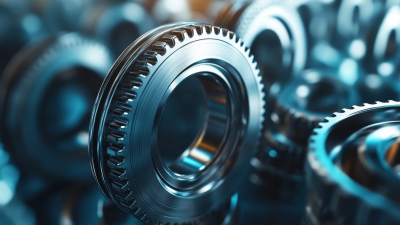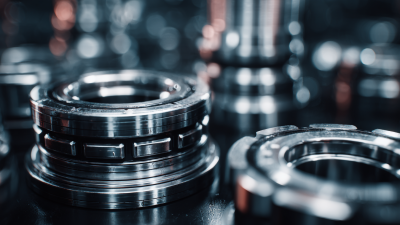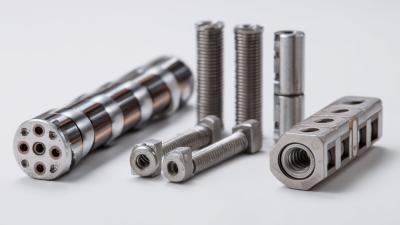What is Deep Groove Ball Bearings Wholesale and Their Benefits?
In the world of mechanical components, "Deep Groove Ball Bearings" play a pivotal role in enhancing the efficiency and performance of various machinery. When obtained through "Deep Groove Ball Bearings Wholesale," manufacturers and distributors can benefit from reduced costs and access to high-quality products that cater specifically to their operational needs. This introduction explores what makes deep groove ball bearings a preferred choice across numerous industries, highlighting their design, versatility, and critical applications in keeping machinery running smoothly.

Additionally, purchasing these bearings in bulk offers economic advantages, providing not only better pricing but also the convenience of maintaining inventory for ongoing projects. This article will delve into the various benefits of sourcing deep groove ball bearings wholesale, guiding businesses on how to leverage these advantages effectively in their operations. Whether it's for automotive, aerospace, or industrial applications, understanding the significance of deep groove ball bearings and how wholesale purchasing can optimize supply chain processes is essential for any business striving for efficiency and cost-effectiveness.
Understanding Deep Groove Ball Bearings and Their Wholesale Market
Deep groove ball bearings are a pivotal component in various mechanical applications, known for their versatility and ability to handle both radial and axial loads. According to a report by MarketsandMarkets, the global ball bearing market is projected to reach approximately USD 22.51 billion by 2026, with deep groove ball bearings comprising a significant share due to their widespread use in industries such as automotive, aerospace, and manufacturing. Their simple design, which features a deep raceway, allows them to accommodate high-speed operations and reduce friction, providing enhanced reliability and performance.
The wholesale market for deep groove ball bearings has seen substantial growth, fueled by the increasing demand for automation and efficient machinery. Industry reports indicate that the Asia-Pacific region is expected to dominate the market, driven by rapid industrialization and the expansion of manufacturing sectors in countries like China and India. Additionally, the rise of e-commerce platforms for industrial supplies facilitates easier access to wholesale purchasing, allowing businesses to optimize their supply chains and reduce costs. As companies seek to improve operational efficiency, understanding the benefits and procurement strategies for deep groove ball bearings becomes essential for staying competitive in today’s market.
What is Deep Groove Ball Bearings Wholesale and Their Benefits?
| Specification |
Dimension (mm) |
Dynamic Load Rating (kN) |
Static Load Rating (kN) |
Weight (kg) |
Wholesale Price ($) |
| 6200 |
10 x 30 x 9 |
5.8 |
2.5 |
0.018 |
1.20 |
| 6201 |
12 x 32 x 10 |
6.2 |
2.8 |
0.022 |
1.50 |
| 6202 |
15 x 35 x 11 |
7.8 |
3.5 |
0.025 |
1.80 |
| 6203 |
17 x 40 x 12 |
8.6 |
4.4 |
0.033 |
2.00 |
| 6204 |
20 x 47 x 14 |
10.3 |
5.2 |
0.045 |
2.50 |
Key Benefits of Purchasing Deep Groove Ball Bearings in Bulk
Purchasing deep groove ball bearings in bulk offers several key benefits that can significantly enhance operational efficiency and cost-effectiveness for businesses. First and foremost, wholesale purchasing typically leads to substantial cost savings. Bulk orders allow companies to negotiate better prices with suppliers and reduce per-unit costs, which is crucial for maintaining healthy profit margins. Additionally, buying in bulk ensures that companies have a steady supply, minimizing the risk of production delays due to bearing shortages.
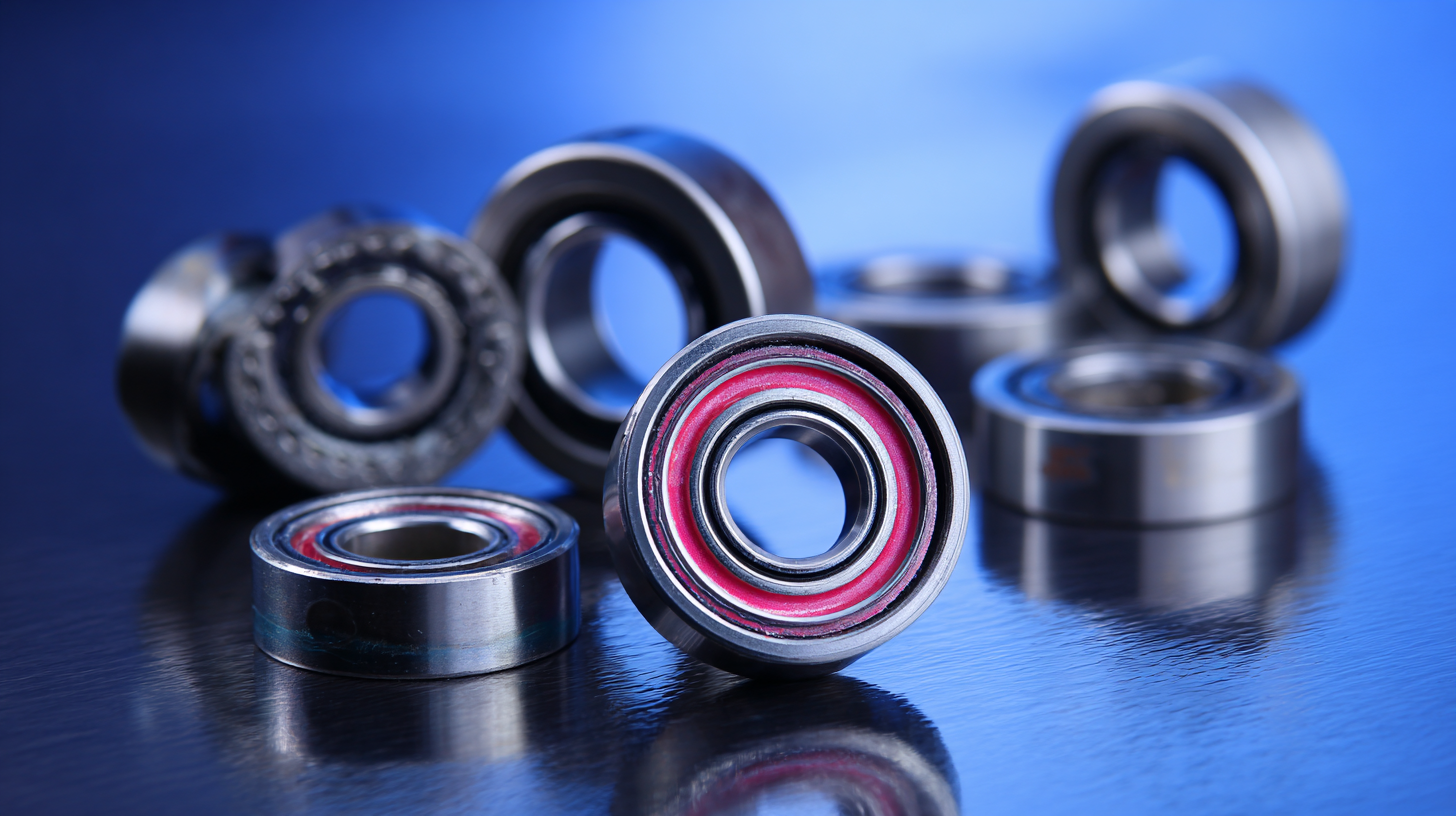
Another significant advantage is the convenience that comes with bulk purchasing. With a larger stock of deep groove ball bearings on hand, businesses can streamline their inventory management and reduce reordering frequency. This not only saves time but also helps in maintaining a consistent production schedule. Furthermore, bulk purchases allow for better planning and forecasting, ensuring that companies can meet customer demands without interruption.
Overall, investing in deep groove ball bearings wholesale proves to be a strategic move for companies looking to optimize their operational capabilities.
Top 5 Deep Groove Ball Bearing Suppliers for 2025
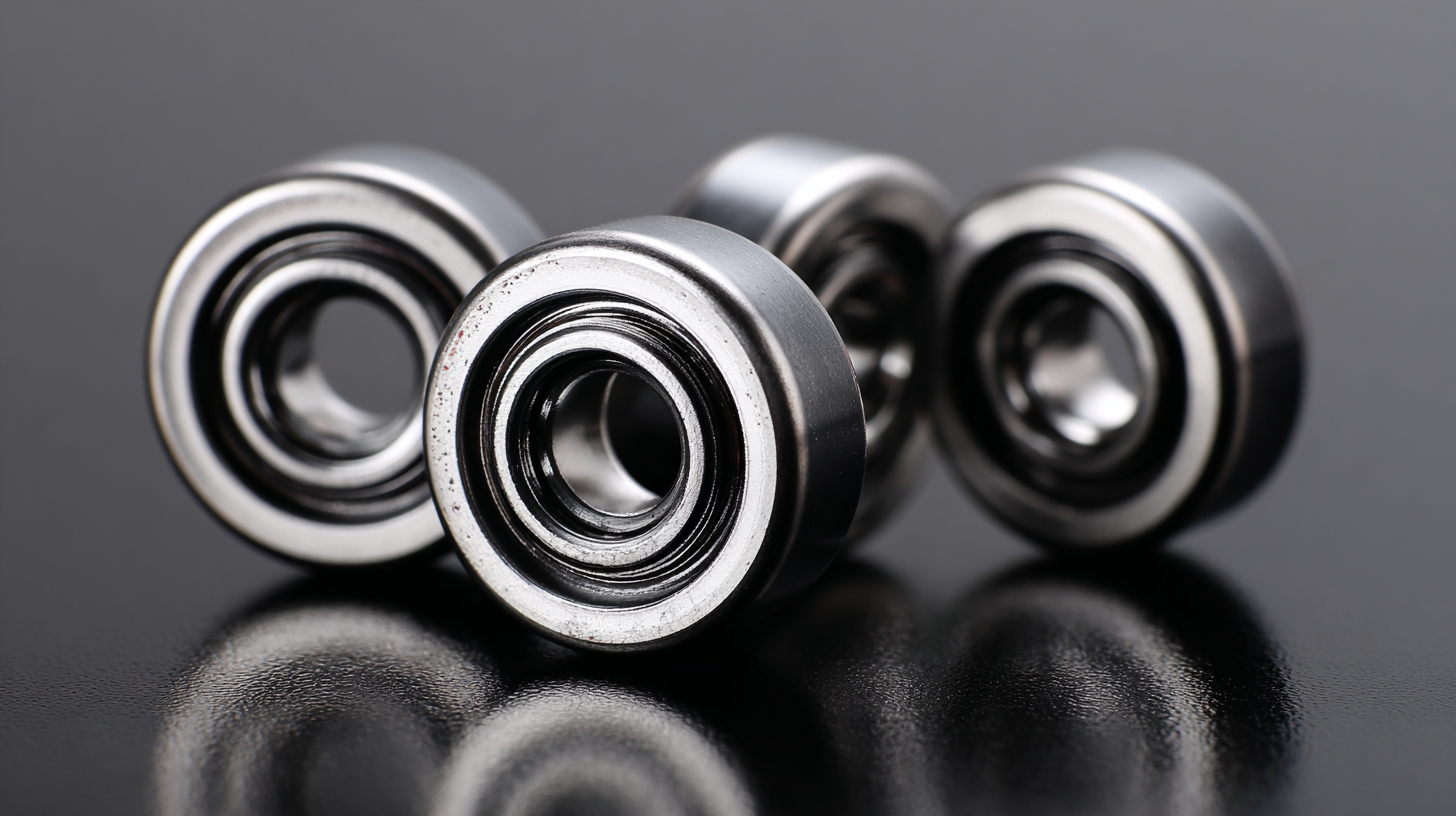 Deep groove ball bearings are essential components widely used in various machinery due to their versatility and efficiency. As demand for these bearings continues to grow, finding reliable suppliers becomes crucial for businesses seeking quality products at competitive prices. In 2025, several suppliers are poised to stand out in the deep groove ball bearing market, offering innovative solutions and enhanced customer service.
Deep groove ball bearings are essential components widely used in various machinery due to their versatility and efficiency. As demand for these bearings continues to grow, finding reliable suppliers becomes crucial for businesses seeking quality products at competitive prices. In 2025, several suppliers are poised to stand out in the deep groove ball bearing market, offering innovative solutions and enhanced customer service.
One of the leading suppliers is SKF, renowned for its extensive range of high-quality bearings and superior technological expertise. Another prominent player is Timken, which provides robust deep groove ball bearings designed for improved performance and longevity. Additionally, NSK offers a variety of bearing types that cater to diverse industrial applications, prioritizing reliability and efficiency. Furthermore, NTN stands out with its commitment to research and development, ensuring their products meet the evolving demands of modern industries. Lastly, Koyo is recognized for its competitive pricing and excellent customer feedback, making it a go-to option for businesses looking to optimize their supply chains in 2025. These suppliers not only enhance operational capabilities but also contribute significantly to the overall effectiveness in various applications.
Factors Influencing the Wholesale Prices of Deep Groove Ball Bearings
When considering the wholesale prices of deep groove ball bearings, several key factors come into play. Primarily, material quality significantly influences costs. According to a report by IBISWorld, the price of steel, which is commonly used in the production of these bearings, has seen fluctuations impacting overall manufacturing expenses. This volatility demands attention, as higher raw material costs often lead to increased wholesale prices.
Additionally, the complexity of manufacturing processes can affect pricing. The American Society of Mechanical Engineers (ASME) indicates that advancements in precision engineering have made high-quality deep groove ball bearings more readily available, yet these more sophisticated production techniques can raise manufacturing costs. Furthermore, market competition is a critical determinant; with numerous suppliers vying for market share, price adjustments can occur based on demand and inventory levels. Understanding these elements can help buyers make informed decisions in a competitive market, ensuring they secure the best value for deep groove ball bearings.
Wholesale Prices of Deep Groove Ball Bearings by Type
This bar chart illustrates the wholesale prices of various types of deep groove ball bearings commonly used in industries. The prices vary based on the size and specifications of each bearing type, which can influence purchasing decisions in manufacturing and maintenance applications.
Applications and Industries Relying on Deep Groove Ball Bearings
Deep groove ball bearings are essential components in various applications and industries due to their versatility and reliability. These bearings are widely used in automotive, aerospace, and manufacturing sectors. In automotive applications, for instance, they are found in engines, transmissions, and wheel systems, where they help reduce friction and wear, ensuring smooth operation. Similarly, in the aerospace industry, deep groove ball bearings support high-speed and high-load conditions, making them ideal for aircraft engines and landing gear.
Tips: When selecting deep groove ball bearings for specific applications, consider the load capacity and operating speed to ensure optimal performance and longevity. Regular maintenance and inspection can also prevent premature failure, prolonging the lifespan of the bearings.
Moreover, manufacturing industries rely heavily on deep groove ball bearings in machinery and automation systems. These bearings enhance the efficiency of conveyor systems, pumps, and electric motors, allowing for continuous operation with minimal downtime. Their ability to accommodate radial and axial loads makes them a preferred choice, contributing significantly to productivity and equipment reliability.
Tips: Always match the bearing specifications with your equipment requirements to avoid mismatches that could lead to operational issues. Additionally, utilizing seals and shields can help protect the bearings from contaminants, thus improving their performance.

Home
Products
Industrial Bearings
Deep Groove Ball Bearings
Self-Aligning Ball Bearings
Angular Contact Ball Bearings
Cylindrical Roller Bearings
Taper Roller Bearings
Spherical Roller Bearings
Bearing housing or Accessories
Miniature Bearing
Thrust ball bearing
Radial Spherical Plain Bearing
Pillow Block Bearing
Needle Roller Bearings
Automotive Bearings
Agricultural Bearings
Special Material Bearings
Industry Application
About Us
News
Contact Us







